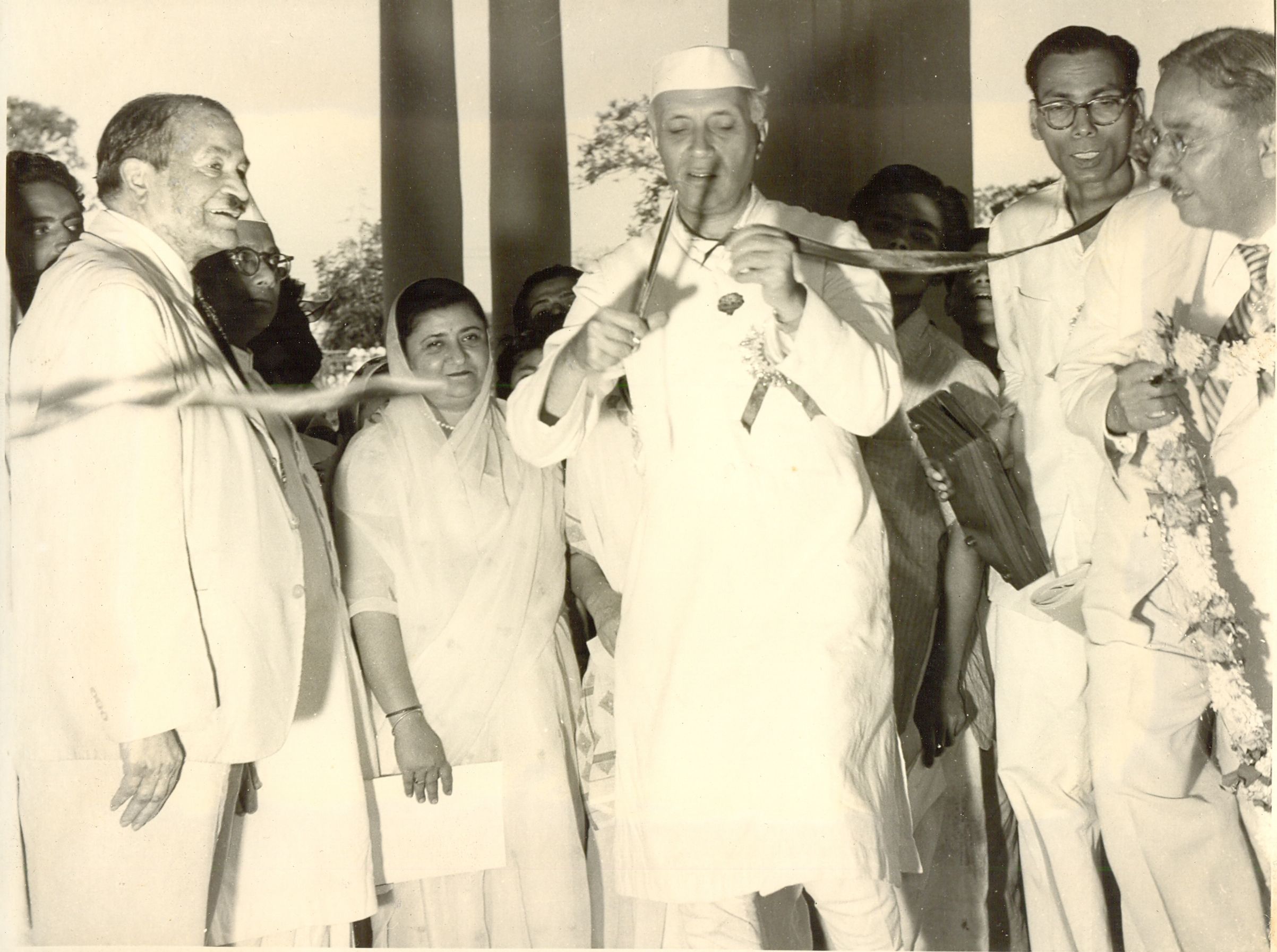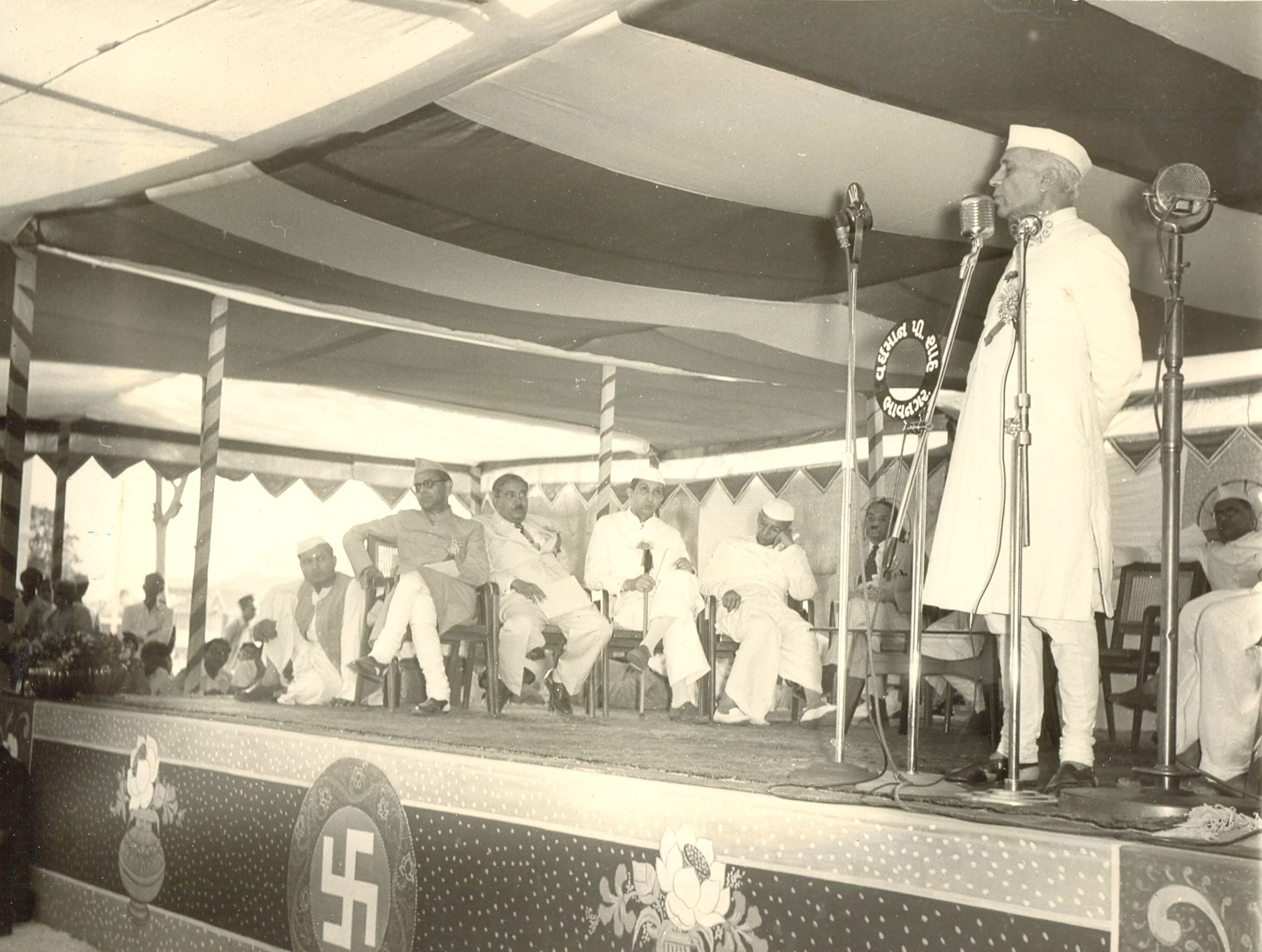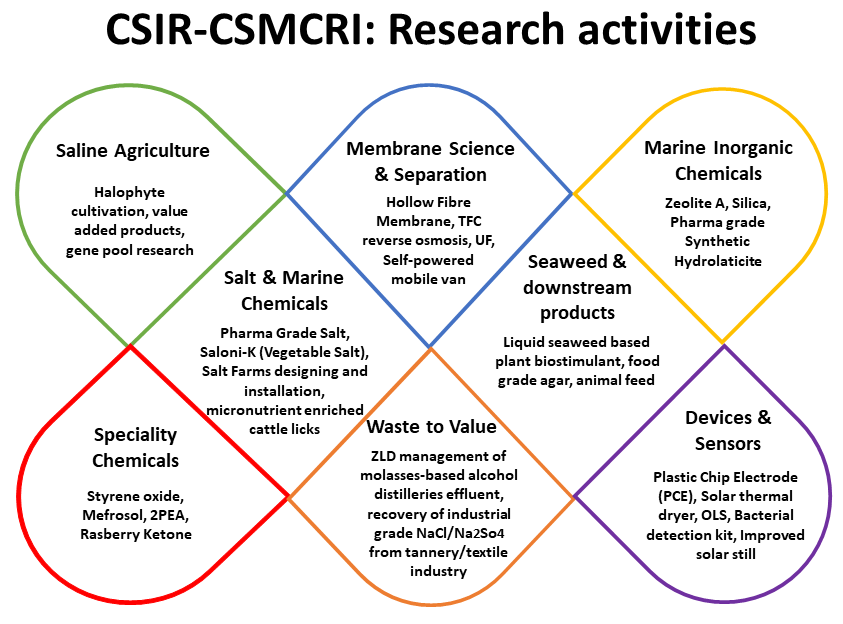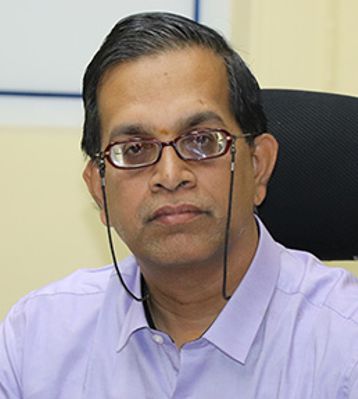About Us
About Us - Genesis of CSMCRI
With a coastline of about 3,500 miles, inland sources in Rajasthan and Little Rann of Kutch, and the rock salt mines in Mandi, India have possibilities of attaining a high position in salt production among the salt producing countries of the world. As is known, apart from being an indispensable item of food, salt is an important raw material for the manufacture of several heavy chemicals e.g. soda ash, caustic soda and chlorine. Besides, salt is used in food processing industries, such as fish curing, meat packing, dairy products and fruit and vegetable canning.
India had been an importer of salt for a long time as her own production was not sufficient to meet the demand. The position deteriorated further after partition, when the extensive rock salt deposits in the Punjab and the marine salt works in Sind went to Pakistan. Soon after the attainment of independence in 1947, India was faced with the problem of meeting the acute shortage of edible salt in various parts of the country. The Government set up an interdepartmental committee under the chairmanship of Shri H.M. Patel, who was then the Cabinet Secretary, to examine and report on the measures for overcoming the shortage of salt. The committee submitted several short term proposals to the Government and also recommended that a Salt Expert Committee should be appointed to investigate into the problems relating to the production, quality and utilization of salt.
The need for salt research was recognized by the Council of Scientific & Industrial Research (CSIR), New Delhi as early as 1940, when, at the instance of Dr.S.S.Bhatnagar, a Salt Research Committee was established to formulate a programme of research on the production and utilization of salt. This Committee was later amalgamated with the Heavy Chemicals Committee and revived in July 1948 with Dr. Mata Prasad as the Chairman. Read more
In April 1948, the Government of India constituted a Salt Expert Committee under the chairmanship of Shri P.A. Narielwala to advise the Government on the measures necessary to place the Indian salt industry on a sound footing. After examining a number of salt works in India, the Committee came to the conclusion that if the quality of salt is to be improved and the salt works are to operate economically and efficiently, it would be necessary (i) to devote more attention to research, (ii) that model factories be set up in the principal salt producing centers to serve as demonstration units for both small scale and large scale manufacture, and (iii) that research stations be established to investigate methods of improving the quality and the yield of salt and also of recovering the byproducts.
In September 1951, Shri C.C. Desai, the then Secretary of the Ministry of Works, Production and Supply, proposed that a Central Salt Research Institute be established under the aegis of CSIR for carrying out research on marine salt, and salt from inland lakes and sub-soil brine. It was suggested that the Institute be located at some centre in Saurashtra; the Ministry of Works, Production and Supply would support any proposal for a grant from the Salt Development Cess for setting up the Institute.
Meanwhile the Government of Saurashtra made a generous offer to place any of their buildings in Saurashtra at the disposal of the CSIR for housing the Institute. If no building was found suitable, the Saurashtra Government offered to pay for the building, provided the Institute was located in Saurashtra.
This offer from the Saurashtra Government was considered by the CSIR, particularly in view of the proposal from the Ministry of Works, Production and Supply that the Institute should be located in Saurashtra. Shri P.N. Kathju, the Planning Officer of the proposed Institute, carried out a preliminary survey of possible sites, both in the north coast and south coast of Saurashtra, for the location of the Institute. Bhavnagar, which being a flourishing centre of higher education in Saurashtra was considered to be suitable for locating the Institute. The Saurashtra Government offered to place at the disposal of the CSIR a magnificent building, "Raj Hotel", for housing the Institute, two bungalows and 125 acres of land for the Experimental Salt Farm (ESF). In view of the facilities offered by the Saurashtra Government for the establishment of the Institute, the CSIR decided to set up the Institute at Bhavnagar.
Thus Central Salt Research Institute (now known as Central Salt & Marine Chemicals Research Institute) was inaugurated by Late Pandit Jawaharlal Nehru, the First Prime Minister of India on 10th April, 1954. The first local Planning Committee consisted of the following members:
- Shri G.C Oza, Minister for Industry & Supply, Saurashtra Government, Rajkot Chairman
- Shri Upender J. Bhatt, Chief Engineer, P.W.D., Saurashtra Government, Rajkot Member
- Dr. Mata Prasad, Director, Central Salt Research Institute, BhavnagarMember
- D.S.I.R. (Ex-officio)Member
- I Shri J.G. Shah, Collector of Bhavnagar, BhavnagarMember
- Shri P.N. Kathju, Planning Officer, Central Salt Research Institute, Bhavnagar Secretary
Excerpts of the Speeches of the Dignitaries
Inaugural function was attended by Shri K.C. Reddy, Minister for Production of Government of India, Shri U.N. Dhebar, Chief Minister of Saurashtra, Dr. S.S. Bhatnagar, Director General, Council of Scientific & Industrial Research (CSIR), Shri P.A. Narielwala, Adviser, Tata Chemicals, Sir Krishna kumar Sinhji, Ex-ruler of the then Bhavnagar Princely State and many other important dignitaries.


CSIR-CSMCRI Today
knowledge generation, intellectual value creation, industry association and societal interventions
CSIR-CSMCRI with its persistent efforts and continued scientific excitement has achieved technological excellence in the core mandate it pursues and is one among the top performing national R&D laboratories in the country. As on April 2021, the Institute has around 210 staff with 170 S&T staff on its roll and around 200 research fellows and project assistants pursing their doctoral programme and engaged in several projects.
CSIR-CSMCRI currently focuses on diverse and highly applied research areas such as salt and marine chemicals, water desalination and purification, membrane based processes for separation & concentration, inorganic materials and catalysis, fine & speciality chemicals including sensing and diagnostics molecules, renewable energy, plant molecular biology & biotechnology with emphasis on seaweeds & salinity tolerance and waste management with a thrust on value recovery and environmental Impact assessment.
The institute’s endeavour/outcome is well balanced by knowledge generation, intellectual value creation, industry association and societal interventions. This institute is recognized as one of the best performing national laboratories of this country within and outside CSIR fraternity. According to the 2021 Scimago Institutions Rankings (https://www.scimagoir.com/rankings.php?sector=&country=IND), we are among the top 700 Global Institutions and top 35 institutes of our country

Currently it has eight divisions namely:
- Analytical & Environment Science Division and Centralized Instrumentation Facility
- Salt & Marine Chemicals
- Inorganic Materials & Catalysis
- Natural Products & Green Chemistry
- Applied Phycology & Biotechnology
- Plant Omics
- Membrane Science and Separation Technology
- Process Design & Engineering
For more details on the division’s project/expertise/achievements, please browse the research areas/domains.
Inaugurated in 1954, solely for the research on the production and utilization of salts, CSIR-CSMCRI has now spread its wings around various aspects on the areas mentioned above with a tentative annual budget of around ₹50 crore ($6.7 million US$; excluding pension). This is demonstrated through quality research publications, intellectual property (IP), technologies, technical services, societal outreach, human resource, and many more.
We have successfully transferred several commercially viable technologies to the industries, in particular and with special emphasis on MSME/Start-up sector. To support these endeavours the institute houses state of the art sophisticated instrumentation facility that comprises separation techniques-based instruments, modern tools of molecular spectroscopy, microscopy and surface characterization techniques. The institute has magnificent library with illustrious collection of books, journals (both physical and online), databases and many more on various domains supported by an excellent IT platform and IT-enabled infrastructure.

The tireless efforts of CSIR-CSMCRI’s manpower is reflected by the national/ international awards and fellowships bestowed on them time and again. Apart from contributing technology development and basic research, CSIR-CSMCRI also shoulders the scientific social responsibilities in a significant manner. It is a matter of great satisfaction that the institute is successively gaining new heights of visibility.
CSIR-CSMCRI frequently undertakes outreach activities and skill development programs. The institute also organizes several programs to generate scientific temper in young minds at the school level, that includes open-day and “Jigyasa”. Through the AcSIR coursework, the institute provides courses on topics “Chemistry of common salt & bittern products” and “Salt Technologies”, which are unparalleled in any Indian Universities. The current offering/engagement of the institute is broadly depicted below:

The institute strives all possible efforts through its ambitious vision for the sustainable churning of the resources, in particular of marine origin, for the wider benefits of the industry/society and in this way building the nation and beyond.
Our Directors
Since 1954

Dr. Mata Prasad
1954 - 1957

Dr. A.N.Kappann
1957 - 1962

Dr. D.S.Datar
1963 - 1971

Dr. D.J.Mehta
1975 - 1980

Prof. K.S.Rao
1981 - 1982

Prof. M.M.Taqui Khan
1982 - 1991

Prof. P. Natarajan
1990 - 1997

Dr. S.D.Gomkale
1997 - 1999

Dr. P.K.Ghosh
1999 - 2014

Dr Sourav Pal
2014 - 2015

Dr SWA Naqvi
2015 - 2016

Dr Amitava Das
2016 - 2019

Dr.S.Chandrasekhar
1 Jan.2020 - 14 Feb. 2020













